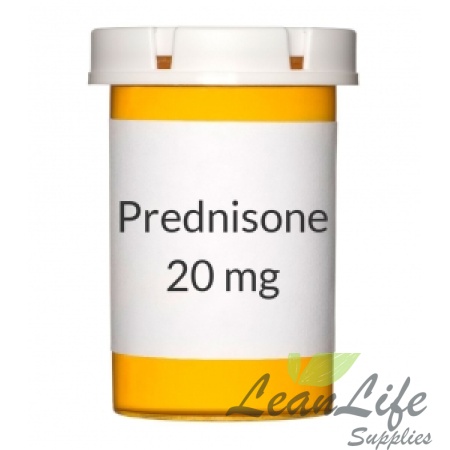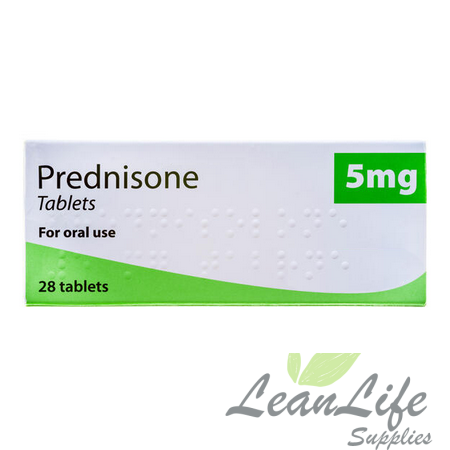Description
What is Medrol (Methylprednisolone)?
Medrol, known generically as methylprednisolone, is a potent medication classified under corticosteroids. As a synthetic derivative of cortisol, methylprednisolone is utilized primarily for its anti-inflammatory and immunosuppressive properties. The primary function of this medication is to reduce inflammation responses in the body while also moderating the immune system’s activity. This is particularly beneficial in conditions where the immune system overreacts or when inflammation can cause significant harm.
Methylprednisolone is commonly prescribed for a variety of health conditions. Among these are allergic reactions, which may encompass conditions such as asthma and seasonal allergies. Medrol is also indicated for autoimmune diseases like lupus and rheumatoid arthritis, where the immune response mistakenly targets the body’s own tissues. In addition, the medication is employed in treating certain types of cancers and complications arising from cancer therapies, showcasing its versatility in managing both chronic health issues and acute medical situations.
The administration of Medrol can vary depending on the condition being treated. Physicians may opt for a tapered dosing schedule, which allows for a gradual reduction in medication to minimize withdrawal symptoms. Alternatively, higher doses might be implemented for short-term treatments to address severe symptoms rapidly. Regardless of the treatment plan, it is imperative that Medrol is used under strict medical supervision, as improper use can lead to significant side effects, including increased susceptibility to infections, mood fluctuations, and alterations in metabolism and weight.
In summary, Medrol serves as a crucial medication for managing a wide array of medical conditions linked with inflammation and an overactive immune response, delivering necessary therapeutic benefits under appropriate guidance.
How Medrol Works in the Body
Medrol, or methylprednisolone, is a synthetic glucocorticoid that mimics the effects of naturally occurring corticosteroids in the body. Its pharmacological action primarily involves the modulation of immune responses and the control of inflammation. Medrol operates by binding to glucocorticoid receptors located in various cells, which leads to a series of cellular responses that help mitigate inflammation and modulate immune function. Upon binding to these receptors, Medrol influences gene expression, enhancing the production of anti-inflammatory proteins while simultaneously suppressing pro-inflammatory cytokines.
The medication is particularly effective in decreasing the activity of immune cells, including lymphocytes and macrophages, which are often heightened during inflammatory responses. By dampening these immune reactions, Medrol can alleviate symptoms associated with various inflammatory and autoimmune conditions, ultimately promoting recovery and comfort in patients.
Medrol is metabolized in the liver through a process that involves enzymatic conversions, including hydroxylation and conjugation. This metabolic pathway is crucial, as the liver’s health is directly linked to the efficacy and safety of the drug. Patients with liver dysfunction may experience altered clearance of Medrol, necessitating careful dosage adjustments. Additionally, the drug is excreted mainly via urine, emphasizing the importance of adequate kidney function to ensure proper elimination from the body.
Furthermore, lung function plays a significant role in the overall effectiveness of Medrol, given its therapeutic applications in respiratory conditions such as asthma and chronic obstructive pulmonary disease (COPD). The interaction of Medrol with lung tissues can diminish airway inflammation, leading to improved breathing and reduced discomfort in affected individuals. Thus, understanding how Medrol functions at a cellular and metabolic level provides valuable insights into its therapeutic role and the considerations necessary for optimal treatment outcomes.
Dosage and Administration of Medrol Tablets (4mg)
When determining the appropriate dosage of Medrol tablets (4mg), it is important to consider the specific medical condition being treated, the patient’s individual response, and their overall health status. The initial recommended dose for Medrol typically ranges from 4mg to 48mg per day, depending on the condition. For acute conditions, a higher initial dose may be prescribed, while chronic conditions usually require lower, maintenance doses to manage symptoms effectively.
Once treatment has commenced, healthcare providers usually tailor the dosage based on the patient’s response to the medication. It is advisable for patients to have regular follow-up appointments, allowing the healthcare provider to monitor their progress and make any necessary adjustments to the dose. For patients who may exhibit altered responses, such as the elderly or those with comorbid conditions, careful consideration should be given when prescribing Medrol. Older adults may be more sensitive to corticosteroids; therefore, a conservative approach to dosing adjustments is often warranted.
Timing of Medrol administration can also influence its effectiveness. Typically, it is recommended that patients take Medrol tablets in the morning to mimic the body’s natural hormonal rhythm. Taking the medication can be done with food to reduce potential gastrointestinal discomfort and promote better absorption. Patient education plays a crucial role in adherence to the prescribed regimen. It is essential for patients to follow their healthcare provider’s instructions closely and not to discontinue the medication suddenly, as abrupt cessation can lead to withdrawal symptoms and potential exacerbation of their condition.
Potential Side Effects and Risks Associated with Medrol
Medrol, a corticosteroid medication containing methylprednisolone, is widely used for its anti-inflammatory and immunosuppressive properties. However, like any medication, it can lead to a range of side effects and health risks that patients should be aware of. The most common side effects include gastrointestinal issues, such as nausea, vomiting, and peptic ulcers. These gastrointestinal disturbances can be particularly concerning in individuals who have a history of digestive problems.
Another notable category of side effects includes mood changes, which may manifest as anxiety, depression, or increased irritability. These psychological effects should not be overlooked, as they can significantly impact a patient’s quality of life. Furthermore, long-term use of Medrol may compromise the immune system, making individuals more susceptible to infections. This increased vulnerability requires careful monitoring and possibly additional precautions from healthcare providers.
In addition to immediate side effects, there are significant risks linked to prolonged Medrol use. One of the prominent risks is adrenal suppression, where the body becomes reliant on the medication, leading to decreased natural cortisol production. This condition requires gradual tapering off of the drug under medical supervision to avoid potentially severe withdrawal symptoms. Osteoporosis is another serious concern, especially for patients using Medrol long-term, as it can weaken bones and increase the likelihood of fractures.
It is crucial for patients to be educated on recognizing potential side effects and understanding when to seek medical advice. Regular check-ups with healthcare professionals can help in monitoring the impact of Medrol and managing any arising issues effectively. Adhering to prescribed dosages and discussing any unusual symptoms with a healthcare provider can mitigate the risks associated with this medication.
Precautions and Contraindications for Medrol Use
Before initiating treatment with Medrol tablets (4mg), it is crucial for patients to consider several precautions to ensure their safety and the medication’s efficacy. One of the primary factors to evaluate is the presence of any allergies. Individuals who have a known allergy to methylprednisolone or any other components in the formulation should avoid using Medrol. Allergic reactions can range from mild to severe and may include symptoms such as rash, itching, or difficulty breathing.
Moreover, patients should be mindful of their existing medical conditions. Individuals with diabetes need to monitor their blood glucose levels closely, as corticosteroids like Medrol can elevate blood sugar levels. Similarly, those suffering from hypertension should be particularly vigilant, as this medication can lead to increased blood pressure. Other conditions that may warrant caution include infections, as Medrol can suppress the immune system, making it harder for the body to fight off infections.
Potential interactions with other medications must also be discussed prior to commencing treatment with Medrol. Certain drugs, such as anticoagulants, nonsteroidal anti-inflammatory drugs (NSAIDs), and some diuretics, may interact with methylprednisolone, increasing the risk of side effects or diminishing the effectiveness of either medication. It is advisable for patients to provide a comprehensive health history to their healthcare provider, including all current medications, supplements, and over-the-counter drugs.
Lastly, specific contraindications should be noted, as Medrol should not be used in patients with systemic fungal infections or those who are undergoing live vaccinations. Understanding these precautions and contraindications is pivotal for ensuring a safe therapeutic experience with Medrol. Engaging in open dialogue with a healthcare professional allows for personalized guidance, thereby mitigating risks associated with this medication.








Reviews
There are no reviews yet.